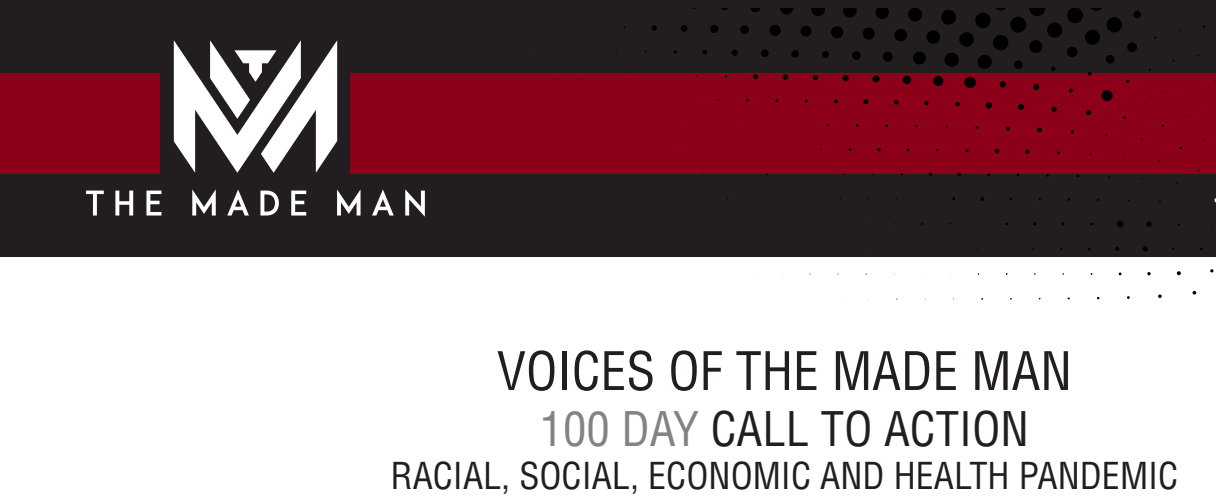Self Help Fraternity Mentors, Empowers & Prepares Black Men & Boys for Success
Black women voters were lauded recently for turning out in force and pushing former Vice-President Joe Biden over the top and into the Oval Office and for making former Senator Kamala Harris the first woman Vice-President and the first African-Americana and South Asian woman to serve in that role.
“I want to speak directly to the Black women in our country,” Harris tweeted the Monday after the election. “Thank you. You are too often overlooked, and yet are asked time and again to step up and be the backbone of our democracy. We could not have done this without you.”
Ninety-one percent of Black women voted for the Biden-Harris ticket. While this credit is much deserved, the contribution of Black men in the election went unheralded. At least 80% of Black male voters cast ballots for Biden.
Black men are leaders
Although Black men have always been on the front lines of the fight for equality and justice, their accomplishments are seldom celebrated.
From slave revolts to the abolition movement and through the passage of civil rights laws, including the Voting Rights Act, Black men died and fought for parity in America. Along the way, Black men have lobbied for human rights, economic equality, affordable housing and education, equal pay, and access to the American Dream.
Despite a lack of recognition, Black men today are stepping up to solve problems within the Black community in New Orleans, nationally, and internationally.
A 21ST CENTURY CIVIL RIGHTS ORGANIZATION
A group of Black men in New Orleans, who are members of a national think tank called The Made Men (TMM), this week held a zoom conference to discuss health disparities in the city’s black community. “The group is gathering data for a White Paper to be shared with the Biden Administration,” says Jonathan Wilson, a facilitator for TMM.
“We need to come up with ideas to help improve the health outcomes in our community,” adds Dr. Eric D. Griggs. “The big elephant in the room is that Black people ain’t taking no shots but they are telling me, Doc, if you do it I will,” Griggs said of Black people’s reluctance to take the COVID-19 vaccine.
Think 504 Publisher Jeff Thomas told the group he understands why there are health disparities. He shared a recent personal experience he had with an older white doctor, who was in his health plan. Thomas was given several medical tests and told to return in two weeks. “I didn’t get any info on test results,” Thomas relates. “I think the medical community, in general, has a problem communicating with black patients.
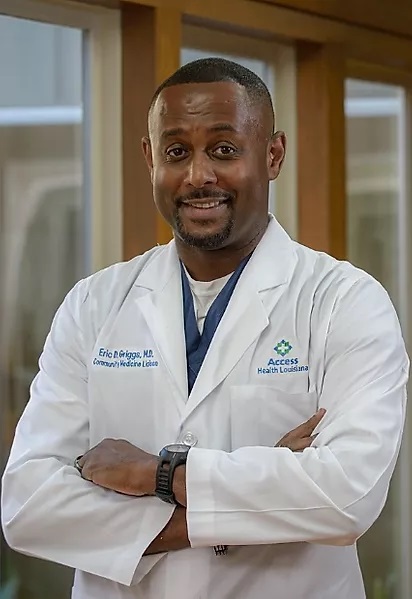
Dr. Eric Griggs Leads Session
“You’ve summed up 400 years of mistrust,” Griggs adds. “I’m not talking about the past but today,” Thomas replies. “Doctors attitudes are real and people’s mistrust is well placed. We need great doctors and community leaders,” says Lloyd Dennis.
Dennis is the co-founder and executive director of the Silverback Society, a non-profit whose mission is to bring together men to effect generational change by preparing boys to be respectful and responsible men.
Dennis says he will want to see what happens to people who took the vaccine in England. Until he is certain that the vaccine is safe for him—Dennis has COPD—he plans to “stay in my house and wash my hands.”
“I saw a report from England. One of the side effects might be Bell’s Palsy. Stuff like that kind of throws people off,” says Dr. Jeff Benjamin. A newlywed, Benjamin says he made sure everyone at his wedding was COVID-tested before the ceremony. “I want to see what happens in the U.K. and America first, then I’ll take it (vaccine).
The Made Man Group Works Behind the Scenes
Griggs says he’ll take the shot on television as a way to encourage black people to take the vaccine. He and Dr. Corey Hebert are working on a rapid “saliva test” where the results are processed quickly. “We need to be clear in our messaging,” Griggs adds.
Convincing the black community to get vaccinated might be difficult because of the lack of black doctors in the U.S. “People fare better when their provider looks like them. And people are more truthful when physicians look like me,” Griggs explain.
Only four percent of the doctors in the U.S. are black. And the majority of those are women.
Griggs emphasized the need for more black male doctors. Griggs says there is a serious need for policy changes to get more African-American doctors in New Orleans.
Dennis questioned about the number of times black boys see black doctors. “If they don’t decide what they want to be when they are 13 or 14, they may not become a professional.”
Griggs volunteered to talk to black youth whenever Dennis can set up zoom visits. “We have to accept the responsibility to help young boys to decide what they want to be,” Dennis adds.
Thomas wondered how long it would take for people to get comfortable with taking the vaccine.
Griggs says his grandmother, who has been deceased sing 2014, came to him in a dream. She said, ‘You have to do this.’ “I’m going to do this,” Griggs says about taking the vaccine, “although I am afraid like everyone else.“
Consensus of the group
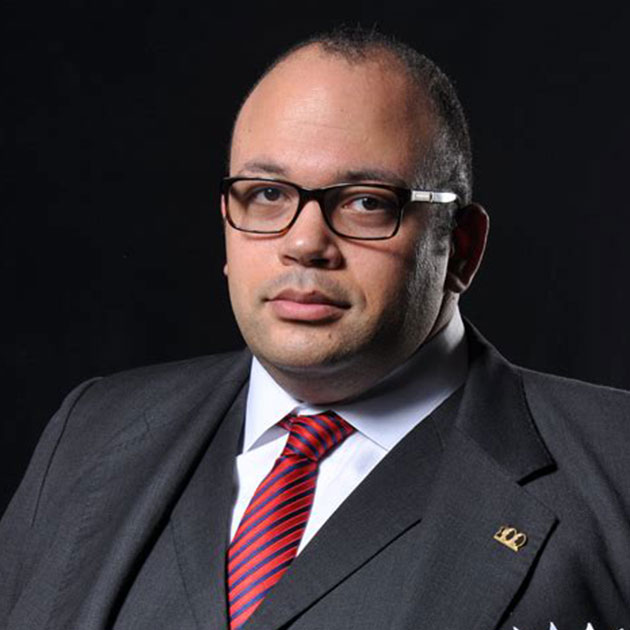
Wilson summed up the consensus of the group regarding addressing health disparities in New Orleans. Communications to the community is key. More communication needs to take place between patients and physicians, more blacks are needed in the medical field.
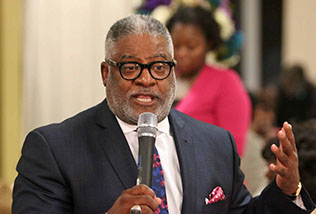
Bishop Tom Watson, of Watson Ministries, suggested that the group reach out to faith leaders to get the message out about the vaccine. He also spoke about the need to partner with black doctors who are socially conscious.
The conversation turned to the need for mental health treatments. Dr. Griggs offered an example of why black people need mental health services, perhaps more than others.
An avid jogger, after Ahmaud Arbery was killed while jogging, Griggs said he stopped jogging. Then he put on weight, and experienced some PTSD.
Consider the number of black people killed by whites in 2020. It’s not hard to understand why blacks, nationwide, might be suffering from PTSD. There is a long history in America of white racists killing Black people simply because of their skin color. Black people are naturally empathetic about such killings and are fearful that they, too, might be the victims unwarranted murder.
Mental Health of African Americans
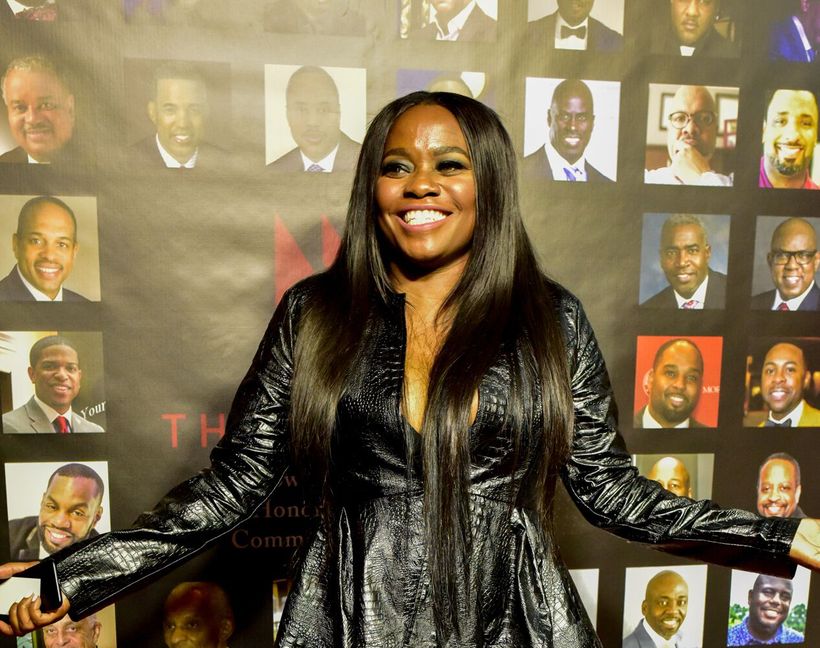
Dr. Ky Dele told the group that TMM has partnered with Black Men Heal. The organization’s mission is to provide access to mental health treatment, psycho-education, and community resources to men of color.
Dele, the executive director and founder of The Made Man, started it seven years ago. She hosted functions sporadically in different cities across the country. In 2018, she incorporated the Made Man Foundation..
Dele, a black woman, is a psychologist and International Strategist. She launched the organization with a mission of “Saving Our Sons, Families & Communities Through Accountable Male Leadership Engagement in Community Empowerment Programming for A Better Society for Man, Woman & Child.”
TMM has built a robust and collective network dedicated to global socioeconomic and community advancement.
The organization advocates for mentorship, education, effective leadership, gender empowerment, equality, economic development, and social justice, It envisions an economic and racially equitable society for man, woman, and child.
To date, Dele has helped over 20,000 youth—providing motivational speaking and cognitive behavioral workshops nationally for over 15 years. Also she has solicited more than 18,000 suits to donate to underserved men. And the group sponsored more than 5800 college application fees through the Made Man Foundation.
Made Man History
In 2017, The Made Man Foundation hosted a U.S. tour which included events in Los Angeles, Charlotte, Chicago, New Orleans, Houston, and other major cities. Dele also launched The Made Man Africa (TMMA) to support the United Nations Sustainable Development Goals. A TMMA tour included stops in Ghana, Ethiopia, South Africa, Nigeria, Sierra Leone, Namibia, Kenya, Côte d’Ivoire, and Liberia.
Professional men in affiliated cities carry out the daily activities of The Made Man Foundation. The organization’s Leadership Council and Advisory Committee provide guidance. Additionally black women lend their support to affiliates through the organization’s Women Influence Network (WIN). All of the components of the organization involve the Who’s Who in Black America. They represents both private and public sector professionals.
The Made Man is the 21st century’s version of a civil rights organization. Those involved are doing what no other ethnicity can do for Black people. They are finding solutions to the issues that inhibit Black people from reaching their full potential.

